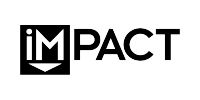.png?width=1920&name=Fractured%20Atlas%20Opportunity%20Scan%20(1).png)
Fractured Atlas Opportunity Scan
What is the Opportunity Scan and How Did It Come to Be?
The Fractured Atlas Opportunity Scan is a high level research scan on six areas of activity that have implications for artists' lives and livelihoods. These areas were chosen by Fractured Atlas staff leadership and board as sites of activity that are outside of the arts sector, but where there might be meaningful opportunities to positively impact conditions for artists. The goal was to inform conversations among the Fractured Atlas team, and the sector more broadly, about how it might evolve its services for artists in light of these emerging opportunities. The research was conducted by Alexis Frasz of Helicon Collaborative. We are excited to share this research with others who may find the information helpful.
The Six Areas of Activity
Below, we share a brief definition of the area of activity explored in the report, as well as some of the significant opportunities for action in each area that could benefit artists.
.png?width=1550&height=1080&name=Opportunity%20Scan%20(1).png)
Access to Capital |
refers to the challenges that entrepreneurs face in how they access the capital they need to start up and grow their businesses. This capital can come from one of three places: investors, loans from banks or other institutions, or personal assets and networks. While an essential part of getting a business going, the challenges to accessing capital are compounded along demographic lines and the types of endeavors that entrepreneurs take on. Opportunities include: creating or supporting Community Development Financial Institutions and community lending principles; participating in impact investment and regenerative finance approaches to increase capital. |
Mutual Aid |
refers to people democratically self-organizing to meet their own and/or others’ needs outside of market structures, the state, and philanthropy. It is neither new nor rare—many groups who are neglected or discriminated against by the dominant society have long depended on mutual aid for survival. Opportunities include: supporting individuals and organizations that are working towards democratically governed operations; encouraging a more conscious embrace of mutual aid practices and tools for cooperation. |
Guaranteed Income |
is defined as a "recurring, unrestricted, and unconditional cash transfer provided to people earning below a certain level of income." (Jain Family Institute) Guaranteed Income as an idea has been around for decades in the U.S., but its momentum has taken off in the last couple years. Opportunities include: mobilizing artists and larger arts sector as advocates for economic justice and community wealth building; advocating for guaranteed income principles to be adopted as "best practice" in the arts sector; and participating in policy and advocacy discussions around broader economic issues. |
Non-Fungible Tokens (NFTs) |
are one part of a larger emerging "Web3" universe, which use blockchain technology to verify transactions, create contracts, and make payments in a decentralized way. An NFT is metadata stored on a blockchain that certifies the uniqueness of a digital object (e.g. image, video, audio, or text). Opportunities include: encouraging education on the potential benefits and downsides of NFTs; exploring blockchain's potential for protecting artists' work. |
1099 Worker Protection and Benefits |
refers to potential solutions to the precarity that people working as independent contractors (those who receive a 1099 tax form instead of a W2 in the U.S.) face in regards to standard employee benefits such as unemployment insurance, workers compensation, disability, and paid leave. Opportunities include: advocating for strengthening laws to combat misclassification of workers as independent contractors who should be employees; strengthening the ability of workers to organization and exert collective power; and extending worker protections and social insurance programs to cover independent contractors. |
Worker Cooperatives |
are businesses that are owned and governed by members for their collective benefit. It is a model of ownership that has been around for centuries, and there are many different types of co-ops. Opportunities include: integrating worker-direction into existing arts organizations; supporting conversions of successful creative businesses to worker cooperatives; educating artists interesting in starting new cultural enterprises on how to integrate principles of democratic governance into their work; increasing opportunities for raising capital for new cooperatives and conversions; and supporting policies and programs that ease cooperative formation and financing. |
Ready to dive in? Download the Opportunity Scan below:
To aid in understanding terminology throughout the report that may be new to readers, please refer to the accompanying glossary. We are learning together – if you have any questions, comments, glossary recommendations, or want to find ways to collaborate on the topics covered in the Opportunity Scan, please contact us at support@fracturedatlas.org.
How to cite the Opportunity Scan:
Alexis Frasz. Opportunity Scan: Opportunities to Support Artists' Ability to Thrive. Edited by Vicky Blume, Theresa Hubbard, Sophia Park, Taji Senior. Fractured Atlas, January 2023.
Seeding Collaborations
Seeding Collaborations is a new series of long-form interviews conducted by the Fractured Atlas team with those at the front of working towards and experimenting with alternative forms to address inequities in the art world that impact artists and arts workers. As such, we cover topics that are part of the Opportunity Scan. We invite you to read and engage with us on these important movements.

Interview with Guilded
Hope Mohr and Daniel Park from the Guilded team talk about the possibilites for worker owned cooperatives and the art world.

Interview with Springboard for the Arts
Laura Zabel from Springboard for the Arts speaks about Springboard's Guaranteed Income pilot and the art world's role in bringing about policy changes that care for artists and culture bearers.

.svg)